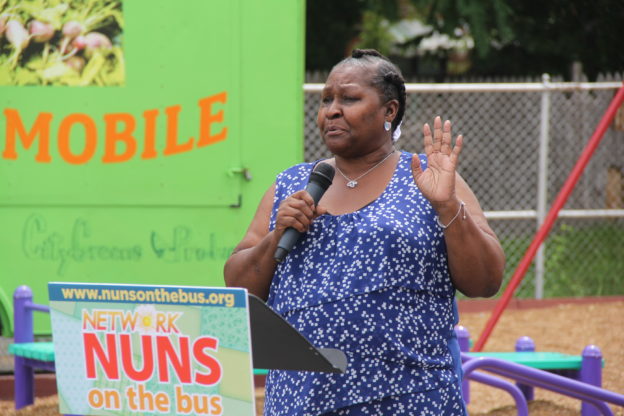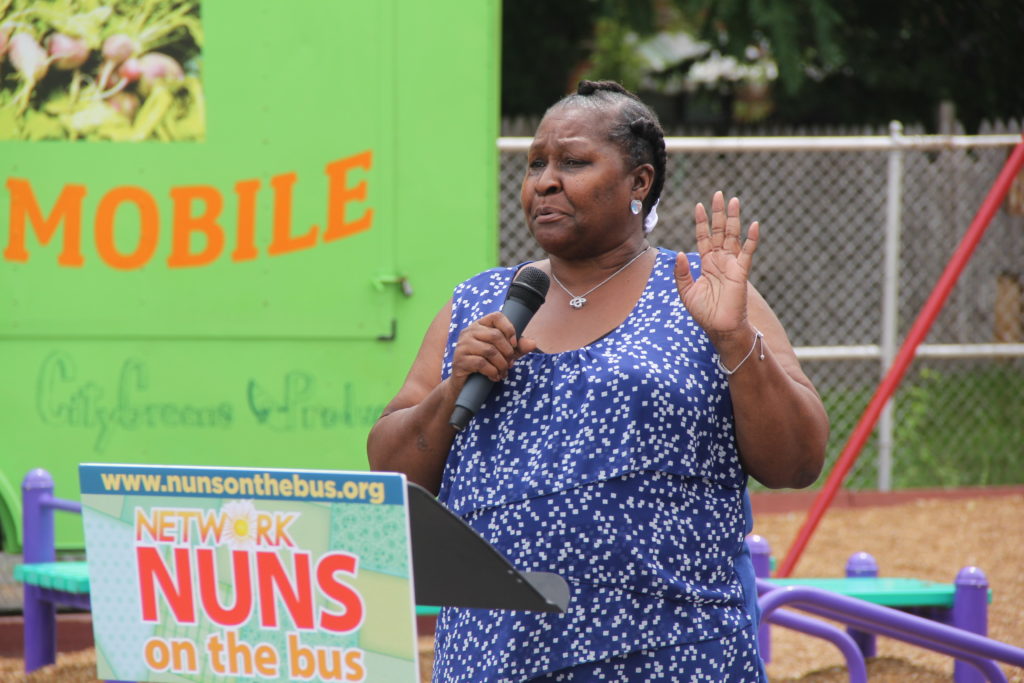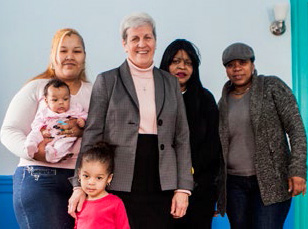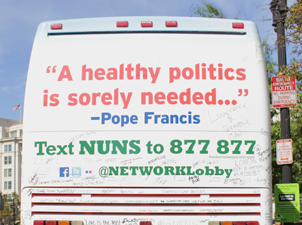
Homeless in America
Rev. LaTreviette Matthews
November 21, 2016
Homelessness looks different for many people. The homeless are the two working parents with children, the veteran who fought for this country and came home to nothing, the single parent mother of two or an elderly person who has no family to take care of them. No one expects to be homeless. No one wakes up one day and says “Today is a good day to be homeless.” Through unfortunate circumstances, homelessness happens. We often take for granted that we will have a place to live every day, especially if you have always had a place to live every day. As a single parent, educated African-American female, I certainly wasn’t expecting to be homeless. I was a manager of a program for the Department of Employment Services in Washington, DC making a salary comfortable enough to support me and my daughter. I lived in a nice three bedroom townhouse, in a safe neighborhood with decent schools. My salary was so comfortable that I was able to afford a new car. Life was great.
One day, the grant for the program I was worked under was cut. My program ended and jobs were lost, including mine. I had been receiving survivor’s death benefits from my daughter’s father who had passed away and started receiving unemployment. Between those two means, meeting my ends became even more difficult. After the rent was paid, I juggled between paying the car note, car insurance and then deciding which household bill was not going to get paid that month.
I had applied to the Department of Social Services for assistance with my utilities and rent. Since I was receiving both survivor’s benefits and unemployment, I was overqualified for any assistance by $13. After my daughter turned eighteen I stopped receiving the survivor’s benefits. The only ends that were getting met were housing. My run with survivor’s benefits ended and I now qualified for public assistance. Applying for public assistance of any kind is humbling experience. I didn’t feel independent. I felt small. Each month I drove around to different churches and organizations that assisted with rent. I wasn’t able to apply to the same place twice within a 30 day period. I was at the point where my ends were not meeting at all. My daughter and I were evicted from our home of eight years. I was devastated, ashamed and embarrassed. I applied to many shelters in the District, Maryland and Virginia area, but because I did not have school age children, I did not qualify. I was in a state of dysphoria. Not wanting to take on another expense, I reluctantly rented a very small storage unit for my big furniture items and stuffed the rest of my belongings in my small two door car.
All of my daughter’s life, it had been just she and I. I had prepared for her to leave for college as did she, but neither one of us was prepared for us to be ripped apart from each other. We scrambled around to find a secure living environment for her so that she could continue her education. It was the hardest thing I ever had to do. I wasn’t prepared for that. I cried leaving her. It was a different cry than leaving your child for college. It was so painful. Me on the other hand, I drove around for ten months with my belongings in my car, staying from house to house, floor to couch.
The difficulty that people who are homeless face is the uncertainty of the day. Not knowing where you will lay your head was stressful. It was a horrifying experience. Being homeless changed me. I saw people differently. The lens through which I saw the system had been radically tranformed. The United States of America is one of the richest countries and most powerful countries in the world and yet it failed me. A system that was put in place to prevent such adversity, has failed many. While I was blessed and was able to bounce back, for the millions of men, women, children, veterans and the elderly who were not so lucky, homelessness in America continues to be a huge crisis.







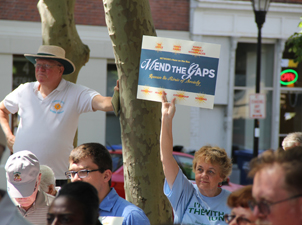
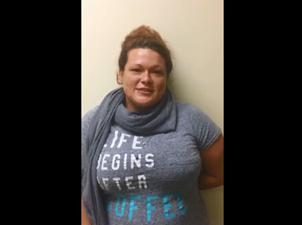
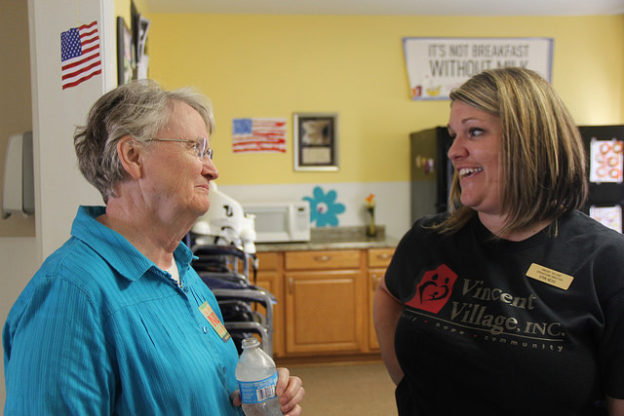

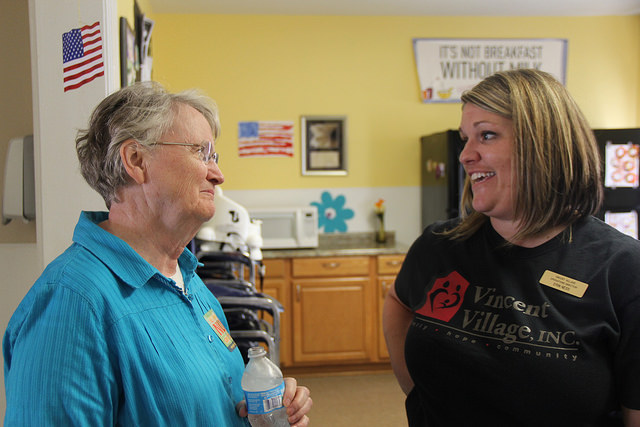 Our site visit began Friday at Vincent Village in Fort Wayne, IN. We were greeted warmly by families and staff of Vincent Village who had crafted welcome banners for our arrival.
Our site visit began Friday at Vincent Village in Fort Wayne, IN. We were greeted warmly by families and staff of Vincent Village who had crafted welcome banners for our arrival.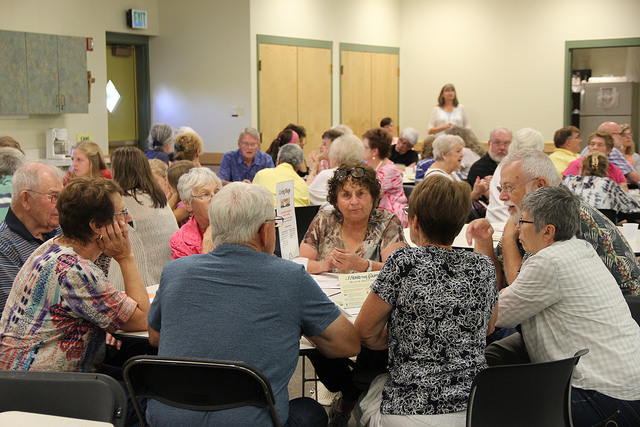 In the evening, we were greeted by Father Phil Widman and the community of St. Mary’s Catholic Church for the Caucus. All who gathered for the Caucus were engaged and eager to discuss the gaps facing the people of Fort Wayne. In equal measure they were visionary and hopeful in discussing what their neighborhoods and communities could look like if the inequalities were addressed and everyone had the opportunity to experience justice and peace. We pray that our brothers and sisters in parishes and places of worship throughout the United States take their responsibility of faithful citizenship and living the Gospel as seriously as the Father Phil Widman and the faithful of St. Mary’s.
In the evening, we were greeted by Father Phil Widman and the community of St. Mary’s Catholic Church for the Caucus. All who gathered for the Caucus were engaged and eager to discuss the gaps facing the people of Fort Wayne. In equal measure they were visionary and hopeful in discussing what their neighborhoods and communities could look like if the inequalities were addressed and everyone had the opportunity to experience justice and peace. We pray that our brothers and sisters in parishes and places of worship throughout the United States take their responsibility of faithful citizenship and living the Gospel as seriously as the Father Phil Widman and the faithful of St. Mary’s.